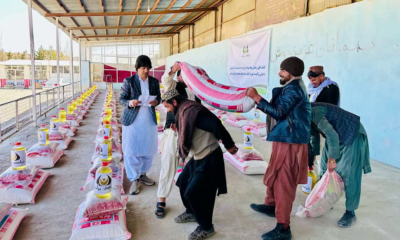Latest News
Pakistan speeds up Afghans’ repatriation after deadline expires
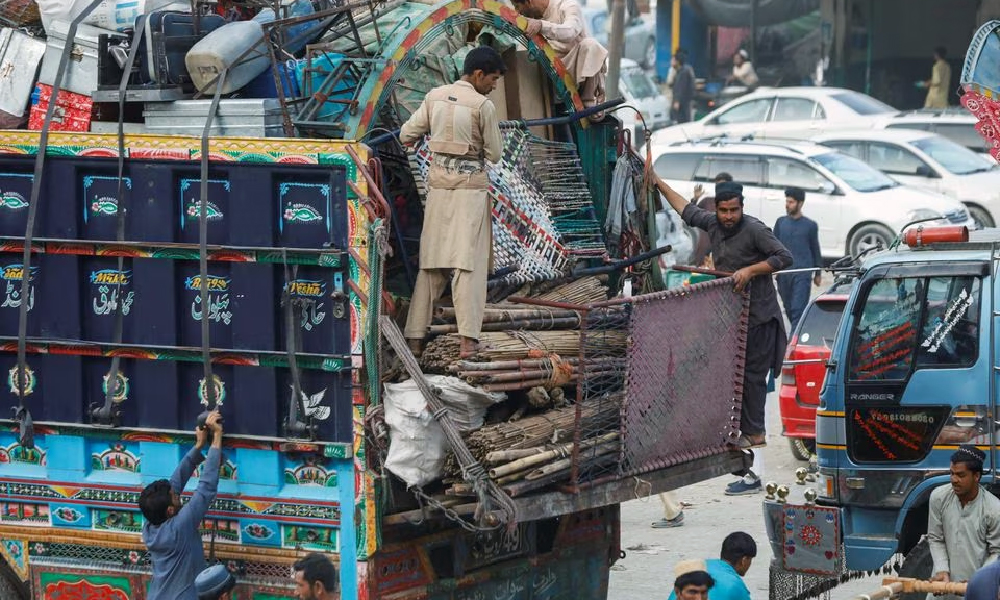
Pakistan opened more border centers on Friday to speed up the return of tens of thousands of undocumented Afghans, the country’s official said, two days after a deadline to leave or face expulsion expired and ignoring pleas to give the plan a rethink.
Pakistan has brushed off calls from the United Nations, rights groups and Western embassies to think again about expelling more than a million of 4 million Afghans in the country, saying they had been involved in Islamist militant attacks and crimes that undermined the security of the country, Reuters reported.
Afghanistan denies the accusations, saying Pakistani security is a domestic problem and calling on Pakistan to reconsider.
Facilities at the main northwestern border crossing of Torkham have been increased three times to cater for the rising number of returnees, said Abdul Nasir Khan, deputy commissioner for Khyber district.
Those arriving in Afghanistan complained of hardships they had to face to move out of Pakistan and uncertainty over their future, read the report.
“We spent three days on border in Pakistan. We had very bad situation,” said Mohammad Ismael Rafi, 55, who said he lived for 22 years in the southwestern Pakistani border town of Chaman where he had a retail business.
“Thank God that we have arrived back to our country,” he said. It took him six days to leave his home in Pakistan with his 16 family members and belongings to reach a makeshift tent village on the other side of the border.
Rafi accused Pakistani officials of taking bribes to process his repatriation. Authorities deny that.
He has rented a house in Kandahar before moving to his ancestral home in Helmand province.
Afghan schoolboy Sarfraz, 16, who goes by one name, said he and his father had never visited Afghanistan and did not want to go there now. His grandfather migrated to Pakistan decades ago.
The Islamic Emirate of Afghanistan (IEA), scrambling to cope with the sudden influx, has set up temporary transit camps where food and medical assistance will be provided.
In a joint statement, the Norwegian Refugee Council, Danish Refugee Council and International Rescue Committee have reported chaotic and desperate scenes among those arriving in Afghanistan.
Pakistani authorities started rounding up foreigners, most of them Afghans, hours before the deadline. Undocumented people who do not leave face arrest and forcible expulsion.
Abdul Nasir Khan, deputy commissioner for Khyber district, said 19,744 Afghans had crossed the Torkham border on Thursday, 147,949 in total since the government announced the deadline. More than 35,000 undocumented Afghans have left through another southwestern Pakistani border crossing at Chaman.
Pakistani authorities said they were open to delaying repatriation for people with health or other issues that would bar them from travelling, including a seven-month pregnant woman who was told to stay in Pakistan to have her baby and then make the journey.
Latest News
Dozens of needy families in Ghazni get much needed food aid from Bayat Foundation
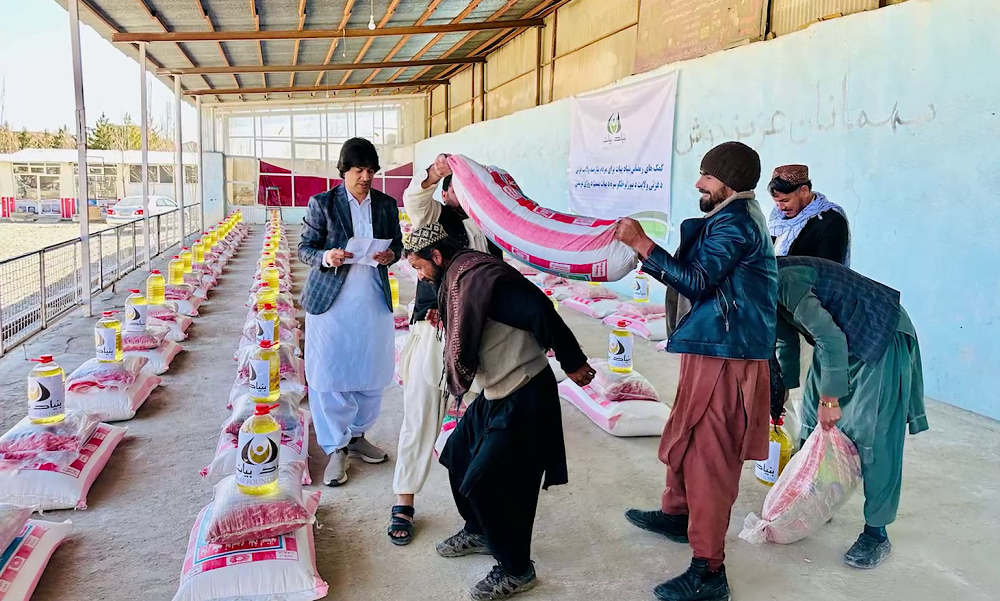
In continuation of Ramadan aid efforts in Afghanistan, Bayat Foundation this week distributed food aid packages to dozens of needy families in central Ghazni province.
Officials from Bayat Foundation stated that these donations were distributed to deserving families after a thorough assessment was carried out.
The foundation distributed food aid that included essential items such as flour, rice, and cooking oil.
Families who received the aid welcomed the initiative and thanked the foundation. They also appealed to other organizations to help the needy during the holy month of Ramadan.
Bayat Foundation has provided significant aid to the needy residents of this province in the past.
The foundation has also distributed substantial amounts of food aid to several other provinces so far this Ramadan.
Bayat Foundation however has also been at the forefront of providing humanitarian assistance during disasters, such as earthquakes and floods. In addition, it has rolled out numerous projects over the years, such as the project to provide clean drinking water in various provinces. It has also helped build mosques, schools and healthcare centers.
Latest News
UN warns over 4 million Afghan girls will be deprived of education by 2030 if ban continues

United Nations spokesperson Stéphane Dujarric warned Monday that over four million Afghan girls could be deprived of an education by 2030 if the Islamic Emirate of Afghanistan (IEA) continues with its ban.
Addressing a press conference in New York Dujarric said UNICEF has reported that another 400,000 girls are being deprived of a secondary school education in this new academic year, which started this week.
“UNICEF tells us that in Afghanistan the new school year started today but an additional 400,000 girls are being deprived of their right to education bringing the total number of girls without access to this essential right to 2.2 million.
“That’s 2.2 million girls being deprived of education today. [This] marks three years since the start of the ban on girls secondary education. UNICEF says that if this ban persists until 2030, which we hope it won’t, over four million girls will have been deprived of their right to education beyond primary schooling.”
He went on to say “Afghanistan cannot leave half of its population behind despite the ban.”
Dujarric pointed out that UNICEF has provided access to education to some 445,000 children through community-based learning, 64% of whom are girls. UNICEF is also empowering female teachers to ensure that girls have positive role models,” he said.
Latest News
Norwegian Refugee Council cuts back on essential humanitarian services in Afghanistan
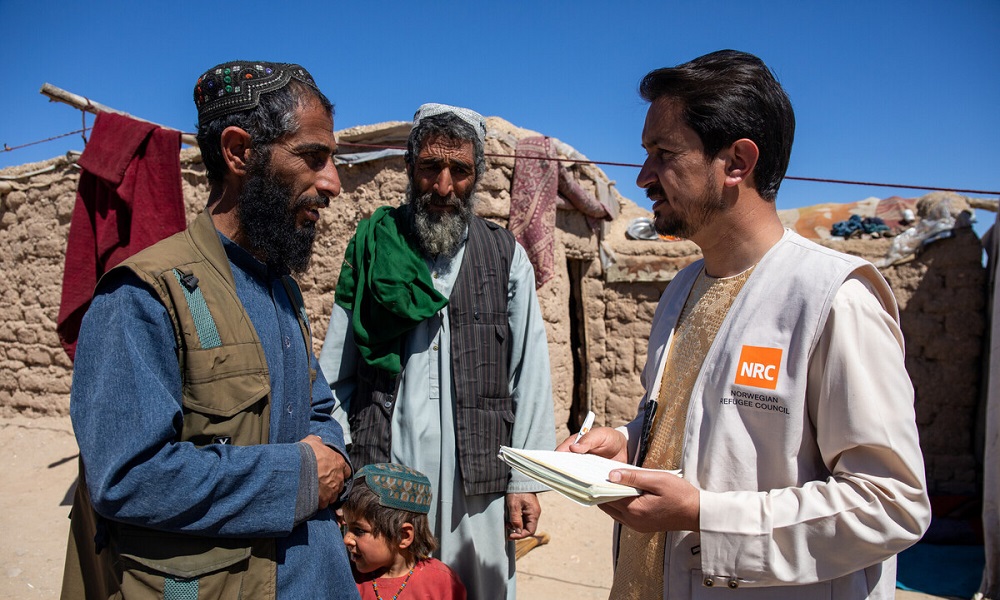
The Norwegian Refugee Council (NRC) said Tuesday it is forced to cut back on services in Afghanistan due to the cuts in aid by Donald Trump, the president of the United States.
In a statement issued on Tuesday, Suze van Meegen, N RC’s interim country director in Afghanistan said: “At a time when men, women and children in Afghanistan urgently need international funding and support, NRC and our partners are facing drastic funding cuts from key donors.
“This situation leaves us with no choice but to make untenable reductions in our services, further jeopardising vital lifelines for the most vulnerable and impoverished communities.”
She said like many humanitarian organisations, NRC Afghanistan has been forced to close offices in several provinces and lay off many dedicated and professional humanitarian staff, with a particularly adverse impact on female aid workers.
“These funding cuts have far-reaching consequences. They extend from communities that have lost access to basic assistance to thousands of experienced Afghan staff that have lost their livelihoods,” van Meegen said.
The NRC warned that wide-ranging cuts in aid will lead to a diminishing footprint of humanitarian agencies in Afghanistan and leave the lives of millions on an increasingly dangerous trajectory, affecting women and children most adversely
In January, Trump suspended ongoing aid projects which forced the majority of US-funded humanitarian work to be put on hold or end. Other donor governments – including Belgium, France, Germany, the Netherlands, Belgium Sweden, Switzerland and the United Kingdom – have since also announced that their global aid budgets will be reduced in the coming years, foreshadowing a significant drop in the assistance available to the world’s most vulnerable.
“This is the most challenging situation that NRC Afghanistan has faced in its 22 years in the country. However, I want to emphasise that NRC Afghanistan is not shutting down its operations. We remain committed to staying in Afghanistan to support displaced women, men and children and to ensure that communities affected by decades of war are not left behind,” said van Meegen.
The NRC said that since January, it has been forced to close two of its community resource centres, with two more at risk without suitable funding in the coming month.
The centres have been crucial in supporting returning and internally displaced Afghans, providing assistance with housing, food, legal assistance and referrals to healthcare providers, particularly for Afghan women who are heading their families and depend on female-to-female aid.
The loss of female aid workers across the country is further restricting women and children’s access to essential services, reinforcing the conditions that prevent them from enjoying their basic rights, the NRC said.
Van Meegen said: “To prevent catastrophic damage in Afghanistan, the international community needs to step up and commit to supporting a population that has faced decades of war and neglect.”
The NRC has been present in Afghanistan since 2003, delivering key services with the support of its donors, directly delivering assistance to people in need.
This includes providing shelter and protection services to displaced Afghans and those returning from neighbouring countries.
According to the UN’s latest findings, almost 22.3 million Afghans need humanitarian assistance and 1 in 3 Afghans (more than 14 million people) do not know where their next meal will come from.
In 2024, the United States contributed just under $742 million to Afghanistan’s $1.72 billion Humanitarian Response Plan – this equalled 43.4%.
The 2025 humanitarian response plan for Afghanistan is currently just 13.3%, according to UNOCHA.
-

 Latest News5 days ago
Latest News5 days agoPakistan once again urges IEA to act against militants
-

 Sport4 days ago
Sport4 days agoAFC Beach Soccer: UAE thrash Afghanistan 7-1 in opener
-

 Regional5 days ago
Regional5 days agoAt least 91 killed in Gaza as Israel abandons ceasefire, orders evacuations
-

 Latest News4 days ago
Latest News4 days agoAmerican freed by IEA reunited with wife, former cellmate, in US
-

 Regional4 days ago
Regional4 days agoIran’s leader says Yemen’s Houthis act independently, warns against US action
-
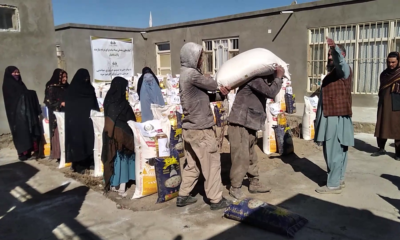
 Latest News4 days ago
Latest News4 days agoBayat Foundation delivers Ramadan aid to needy families in Bamyan
-

 International Sports3 days ago
International Sports3 days agoBoxing legend George Foreman dies at 76
-
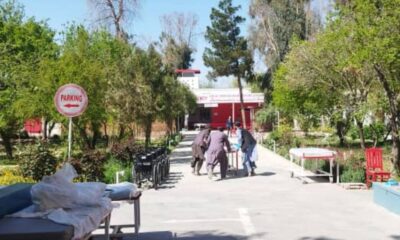
 Latest News4 days ago
Latest News4 days agoEighteen injured after dispute between two brothers in Helmand






